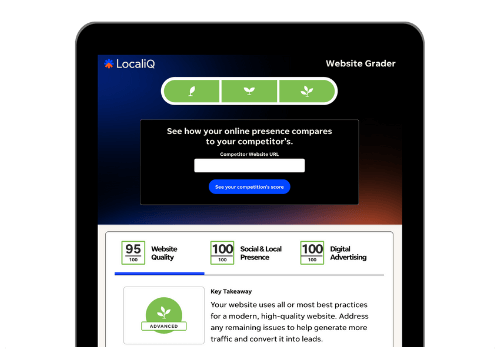When you’re thinking about how best to structure your SEO approach, it’s helpful to keep in mind the way consumers search. Understanding how and why consumers search for certain terms or phrases helps you get your business seen by them at the right time.
Here are some things to consider about the way people use search engines and how their actions should influence your SEO strategy.
They Speak in Keyword Phrases
Most consumers are not searching for single words. When they’re looking for a good or service to solve their specific problem, it’s likely that they’ll use a full keyword phrase rather than just one generic word.
Let’s say someone is having issues with a leaky faucet. It’s unlikely that they’ll begin their search with the term plumber. Instead, they might type in a question related to their issue: “How do I fix a leaky sink?” Or perhaps they’ll enter more specific search terms related to your profession: “emergency plumber Atlanta area.”
The best way to understand the keywords driving users to your site is to check out Google Search Console. This free tool from Google has a lot of features that will help you understand how people are finding your business online. One of the most helpful is the report that shows you the search terms that brought consumers to each of the pages on your site.
They Like to Keep It Local
Over the years, Google has gotten smart about catering to consumers’ local search needs. A quick search of “plumber near me” or “plumber in Westchester County” will pull up results on the main page and Google Maps.
To appear in Maps results, you need to have claimed your listing on Google My Business. In addition to claiming your listing on Google, you should also think about how and where you’re appearing on other local listings. For consumers who choose to skip Google altogether and instead search for local businesses via the Yelp app or on Facebook pages, it’s important that you’re present on these major sites (as well as any niche channels that are relevant for your industry).
They’re Relying on Voice More & More
Voice search is becoming an increasingly popular way for consumers to find local businesses. And it makes sense: Voice is a quick, easy, hands-free way to find a solution to their needs.”¯
Imagine a potential customer is out running errands and realizes they need to pick up cupcakes for their child’s classroom party tomorrow. The only problem is that they’re in an area of town they don’t know and are behind the wheel, so they can’t type a query into their mobile device. They’re looking for an immediate solution, and you want to be sure it’s your business that crosses their path while their intent to buy is real and immediate.
That’s why it’s important that you ensure your website is optimized for voice search. A mobile-friendly site is the first step to getting noticed by search engines.
From there, you want your site to contain natural language”the kind of content that’s likely to get identified by Siri or Alexa as relevant in a voice search. Plus, the local listings come in handy again here, since those directories are often where voice search results will pull information from.
They’re Searching Across All Devices
There are a lot of places where consumers might search for your business. If they’re on the go and looking for an immediate answer, they might turn to voice or mobile search. If they’re looking to make a bigger purchase and want to do a deeper dive into reviews of your business and read through multiple pages of your website, they might rely on a tablet or desktop search.
That’s why it’s important to make sure your website looks great across all devices. Mobile-friendliness is now a key factor in how you rank on Google, so it’s important that your mobile site shines.
But it’s just as important that you make a great impression on desktops. Consumers are a lot more likely to do comparison shopping on a larger format screen. Plus, if yours is a business that either sells more expensive items or offers costly services, consumers will likely do a more involved investigation into your business and offerings before committing to the associated cost.
Understanding how consumers search for products and services is the first step to creating an SEO strategy that garners you winning results. Thinking about the real-world ways in which consumers interact with search engines (and even taking the time to survey some of your existing customers, asking how they found your business) is a great way to position your business to come out on top in search results.
Related Articles
What to Expect when You Start SEO






